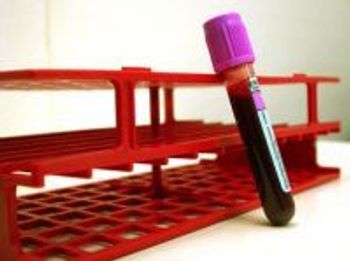
We have seen a phenomenal bull market in commodities recently. Oil, gold, corn, and copper have all provided investors with great returns. But which commodity might be the best investment going forward? Would you believe water?

We have seen a phenomenal bull market in commodities recently. Oil, gold, corn, and copper have all provided investors with great returns. But which commodity might be the best investment going forward? Would you believe water?

When Congress passed the alternative minimum tax (AMT) almost 4 decades ago, it was aimed at fat-cat individuals who often used multiple deductions and complex tax shelters to avoid paying any income tax. But it hasn’t exactly worked out according to plan.

Here's the bait: when the stock market goes up, the value of your annuity goes up. If the market goes down, the value won't go below what you paid in. Like its cousin, the variable annuity, the index annuity comes with a "no-risk" feature that attracts many investors who tend ignore its many downsides. These include steep surrender fees for periods as long as 15 years, which make the annuity an inappropriate investment for seniors.

As more data comes to light confirming the negative effects on health outcomes in ethnic minority patients, the need to promote culturally competent care has become more important.

At a time when Treasury notes are paying miserly interest rates and yields on money market funds aren’t much better, some banks are enticing savers by dangling interest rates as high as 4.25% on a one-year CD. As a result, skittish investors who are taking money out of stocks are finding CDs an attractive alternative that offer safety as well as a decent return.

Healthcare experts have been talking about both a real and potential a shortage of primary care doctors in the U.S. for a few years. Apparently the situation in Canada is even worse. According to a report in the Wall Street Journal, several Canadian doctors, faced with lengthening work days and case loads in the thousands, have held lotteries to pare their patient populations. Some Canadian doctors have used this random-chance method to cut as many as 500 patients from their practice.

There are many similar qualities that contribute to success in any field, such as leadership, analysis, sound decision-making, and passion for one's work. Beyond that, it has been well-documented that the skills that make a good entrepreneur aren't necessarily the same as those that make a good physician.

Even though prostate cancer is the second most common cause of cancer deaths in men, most prostate cancers grow so slowly that the patient often dies from some other cause. This fact has led some healthcare experts to question the value of the PSA test, the primary screening tool for prostate cancer, which more often than not produces a false positive. According to the National Cancer Institute, about 70% to 75% of men with elevated PSA levels are found not to have prostate cancer.

Even though prostate cancer is the second most common cause of cancer deaths in men, most prostate cancers grow so slowly that the patient often dies from some other cause. This fact has led some healthcare experts to question the value of the PSA test, the primary screening tool for prostate cancer, which more often than not produces a false positive. According to the National Cancer Institute, about 70% to 75% of men with elevated PSA levels are found not to have prostate cancer.

The company-owned medical clinic fell from favor several decades ago amid criticisms that the doctors were more aligned with management than with their patients. Now that the concept is making a comeback, some of those same concerns are cropping up, but healthcare cost savings that can amount to millions of dollars are drowning out some of the critics. At the Toyota factory in San Antonio, for example, a clinic run by Take Care Health Systems has helped Toyota slash costs for specialist referrals, emergency room visits, and brand-name prescription drugs. Productivity has jumped too, as employees don�t have to leave the plant to see a doctor.

If you’re thinking about cashing in some of your frequent flyer miles, be prepared for a triple whammy from the airlines. In the past few weeks, several carriers have announced changes that include boosting the number of miles you need to qualify for a free ticket, charging a booking fee when you buy tickets with miles you’ve earned, and cutting back the number of seats that are eligible to be purchased with your miles. Among the major carriers, for example, Delta, American, Northwest, Continental, and US Airways have all slapped new or increased booking fees on customers who buy tickets with frequent flyer miles.

BMW’s new 1 is approximately 172 inches long, a unique size for a four-place convertible. 2008 is the first year of model 1 in the states. The 1 Series has been for sale in Europe for 3 years, and now it comes to North America as a two-door coupe and two-door convertible with a softtop. Overseas, a youthful hatchback model is the most common seller; is this too cheap-looking for the U.S. market?

Doctors nationwide were relieved when Congress rolled back a scheduled 10% cut in Medicare fees. But doctors in California are still facing a 10% cut in the fees paid by Medi-Cal, the state�s Medicaid program. Last month, a California Superior Court judge threw out a request for a preliminary injunction that would have prevented the reductions from taking effect. The cuts are part of an effort by the California legislature to rein in the state�s ballooning $17 billion deficit.

Shopping for a credit card may sound like an oxymoron. Who needs to shop when your mailbox is stuffed with credit card offers almost every day? But comparison shopping for a credit card can save you some hassle, not to mention money. If you pay your entire bill every month, for example, you want look for a card with no annual fee and a longer grace period to pay the bill before the finance charge kicks in.

Every day, physicians are making important decisions regarding the health and well-being of their patients. That's their job. It doesn't mean it's easy, just necessary. But the important decision-making doesn't stop there. New medical technology from a $50,000 account and electronic health record system all the way up to a CT scanner with a $1 million price tag hit the market with regularity.

The rift between patients and physicians is widening, largely due to a combustible combination of physician time being at a premium and patients� expectations about their care being unmet. And while the recently strained relationships hardly resemble the war waged by the Hatfields and the McCoys, the frustration felt by both parties should not be taken lightly.

Chances are that most of what you think you know about living trusts is wrong. That’s especially true if you’ve been listening to scammers who tout living trusts as a solution to every financial problem you’re likely to encounter. One of the more attractive claims that these con artists make is that a living trust can shelter your assets from creditors and litigators. Not true, according to legitimate financial pros.

Many practices will eventually face the inevitable question of whether or not they have outgrown their current office space. The options are to move to a bigger space or get rid of clutter. Which is best for you?

The economy is soft, and the used-car market may even be softer. The car you’re driving has lost a big chunk of its value and a dealer isn’t likely to offer you an attractive trade-in allowance. Why not give it to charity and take a tax deduction? A few years ago, that wasn’t a bad option. You were able to write off the fair market value of the car and all you had to do was look it up in a guide like the Kelley Blue Book and deduct that amount.

Time is such a valuable commodity that it’s a shame when investors squander it. Yet, many investors blow it, wasting a resource that can’t ever be recovered.

The odds are good that you’ve already spent the money you got from Uncle Sam as part of his economic stimulus package, but the party isn’t over yet. Buried in the stimulus package are some business incentives that you should be looking at, especially since you only have until the end of the year to take advantage of them. If you buy new medical equipment in 2008, for example, you can expense up to $250,000 of the cost upfront instead of taking a deduction based on depreciation. That’s almost double the $128,000 you were previously allowed. The deduction also applies to expenses for items like furniture and computers.



In recent years, the number of store-based walk-in medical clinics has mushroomed. The clinics, typically staffed by nurse practitioners who treat routine medical problems, have been hailed by many in the healthcare field as a way to improve access to care and cut costs. Although located in big-name stores like CVS, Walgreens, and Wal-Mart, however, many of the clinics are bankrolled by third parties, and they�ve been pulling the plug on some that haven�t been profitable. The number of retail clinics nationwide dropped for the first time last month, falling from 981 to 969, leading some industry observers to speculate that the boom may be over. Last year, retail clinics were opening at a rate of one a day.

Honda�s sport-utility vehicle is completely redesigned for 2009. The Honda Pilot is uniquely versatile and fits nicely into an unusual niche. The most direct competition to the Pilot comes from General Motors.

When physicians need help navigating through the sea of finance and the wide array of investment vehicles available today, who do they turn to? A personal financial advisor, of course. Well, the same is true for consumers when it comes to healthcare decision-making, including treatment options and hospital stays. People pay to have their health looked after by a trusted health advisor, just as if their medical record were a financial portfolio.

You just got a statement from your IRA custodian and your account is hemorrhaging red ink. Can you deduct those losses? For traditional IRAs, the simple answer is No. But nothing is simple when you are dealing with the tax code. If you cash in all your IRAs, which you must do before you can claim a loss, and the total amount you receive is less than your basis in the IRA, the loss may be deductible. The kicker is that to have a basis in a traditional IRA, you need to have made some non-deductible contributions to it somewhere along the line. If you never did, you have no basis and therefore no deductible loss.


The law that Congress recently passed that rolled back Medicare fee cuts contained some other goodies for doctors. Among the less publicized benefits is a bonus for doctors who prescribe drugs electronically instead of using paper prescriptions. Starting next year, doctors who go the e-prescription route will get a bonus of 2% of all the Medicare services they provide during the year. In 2011, the bonus payment will drop to 1% and will eventually phase out by 2013. In the meantime, doctors who cling to paper-only prescriptions will be have their Medicare payments cut by 1% starting in 2011, a penalty that will go up to 2% in 2013.

Denis Chagnon, MD, Latham Medical Group, has been a private practice family physician for 35 years. At age 62, he’s probably seen it all. Part of what he’s seen is that his 2007 take-home income, in real dollars, was less than it was 15 year ago. And unfortunately, Chagnon is not alone. Income to primary care physicians over the last 20 years has gone up, in actual dollars, by just 20 percent, according to Allan Goroll, MD, professor of medicine at Harvard Medical School.